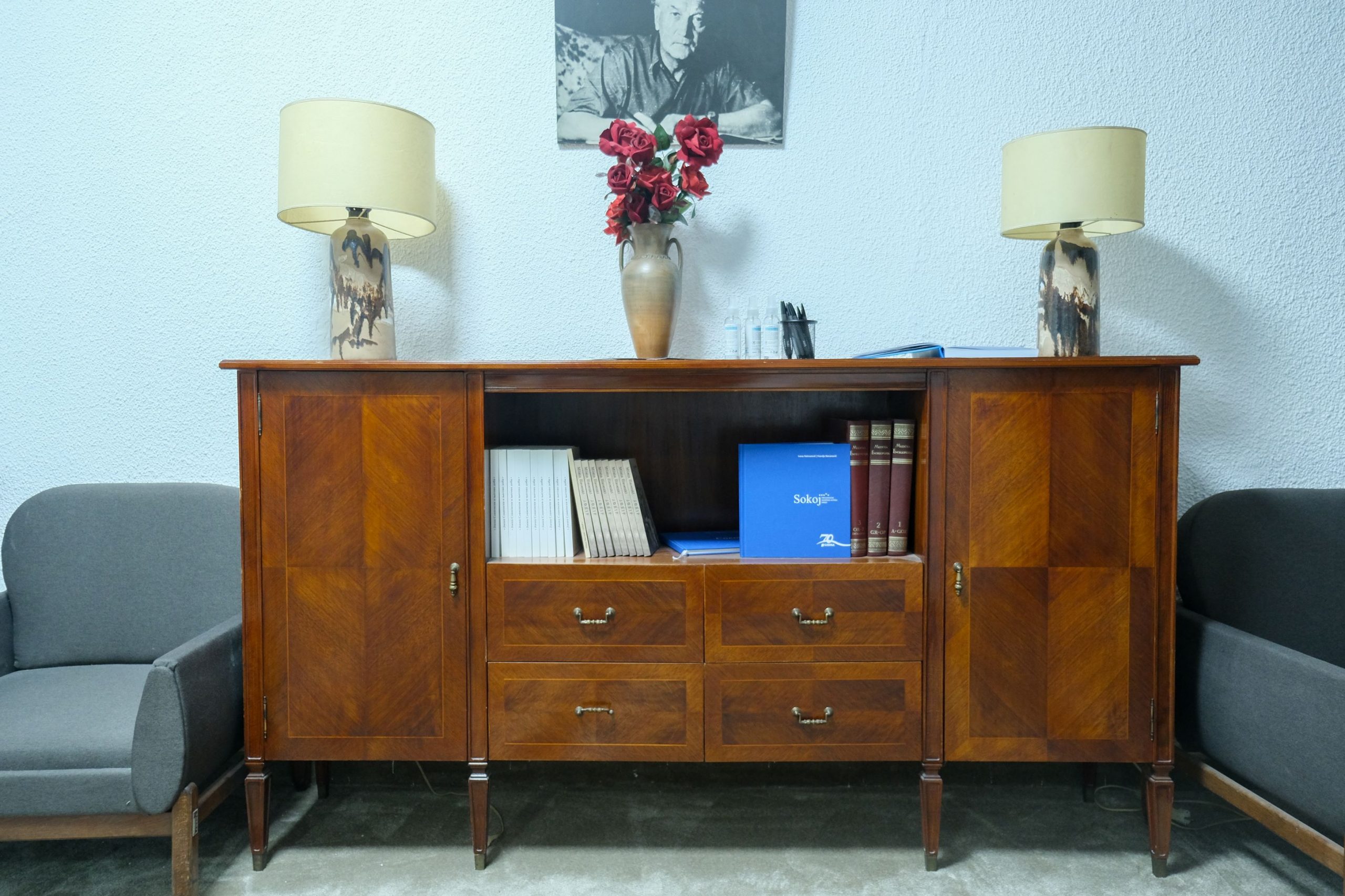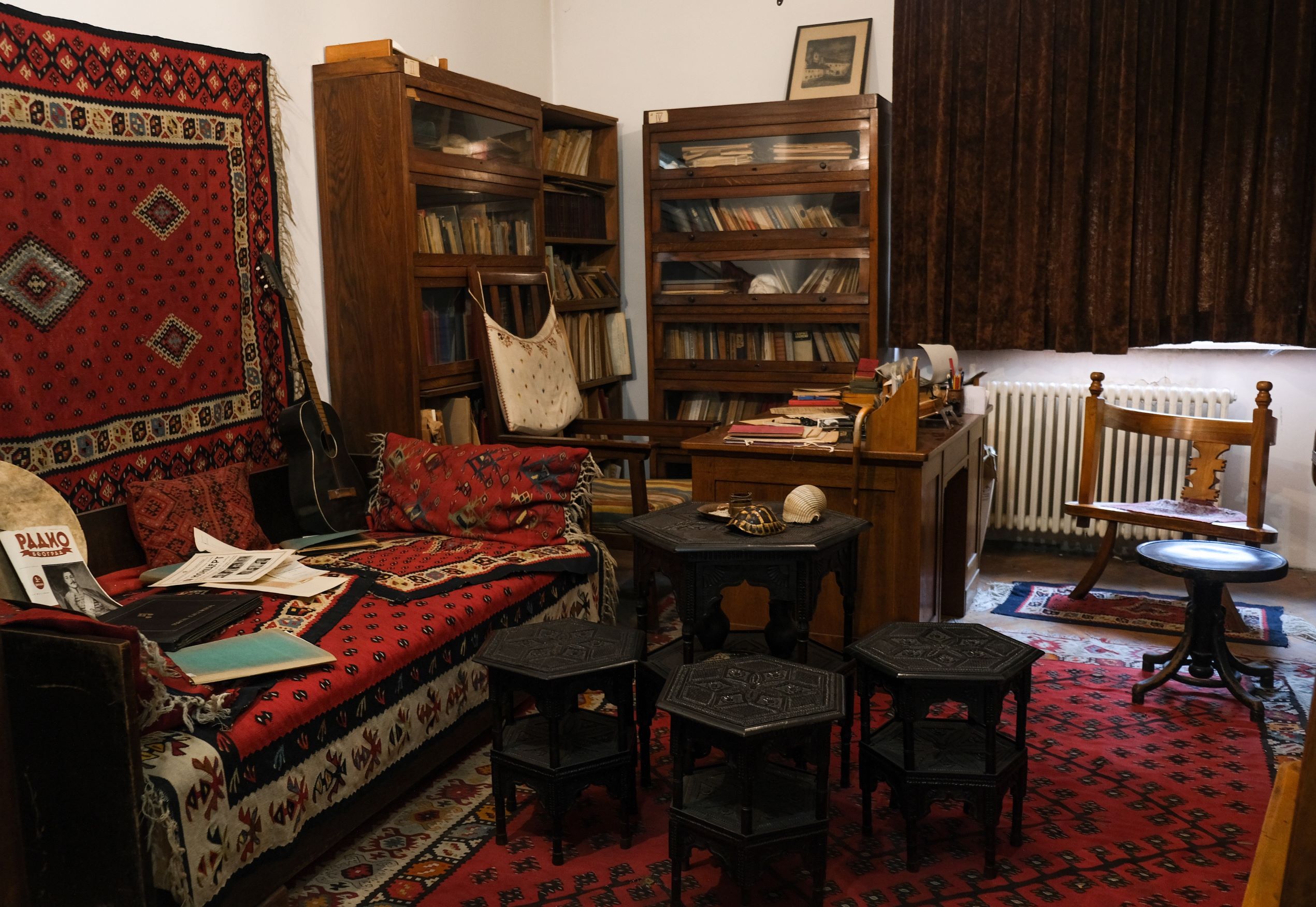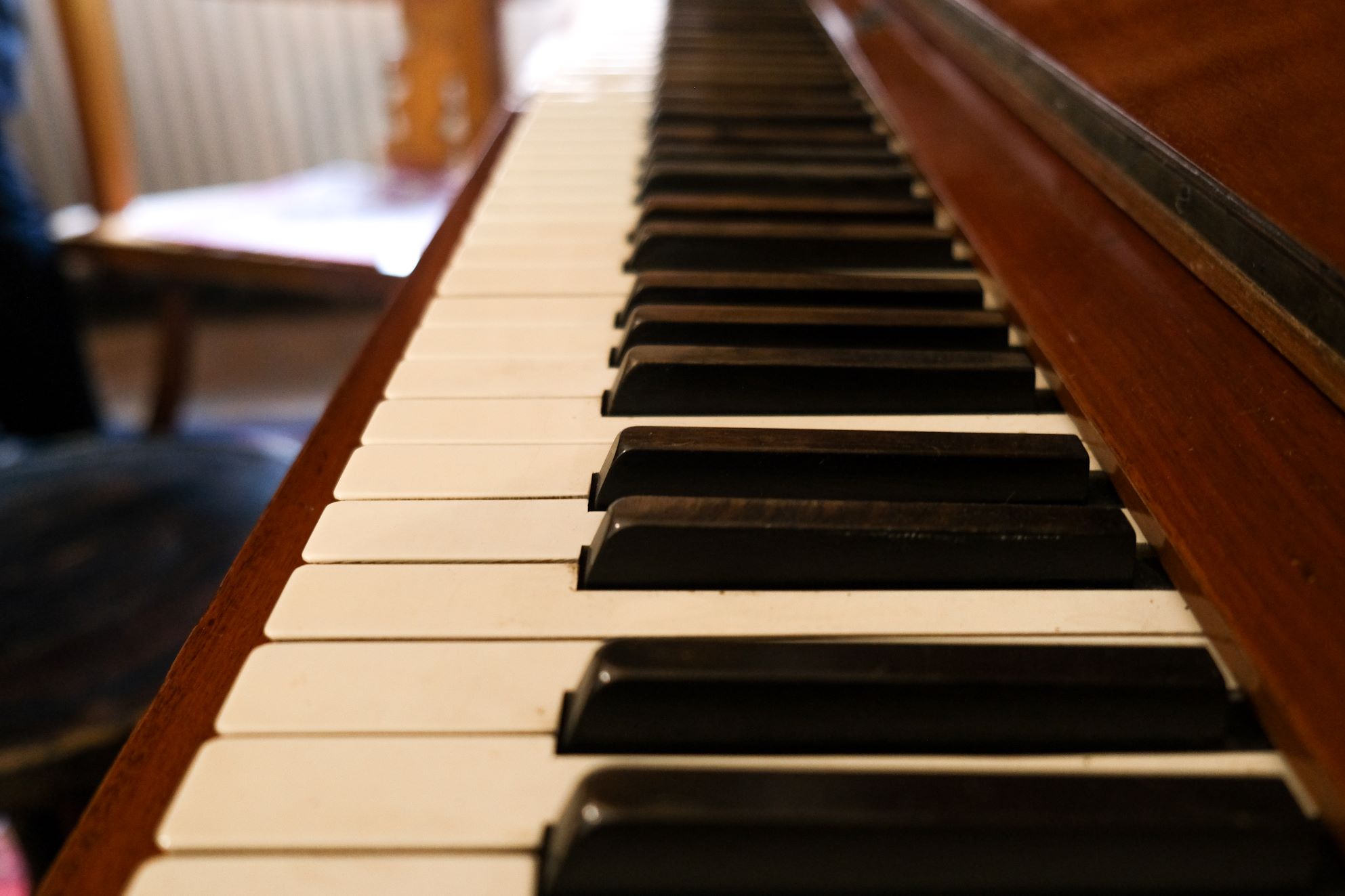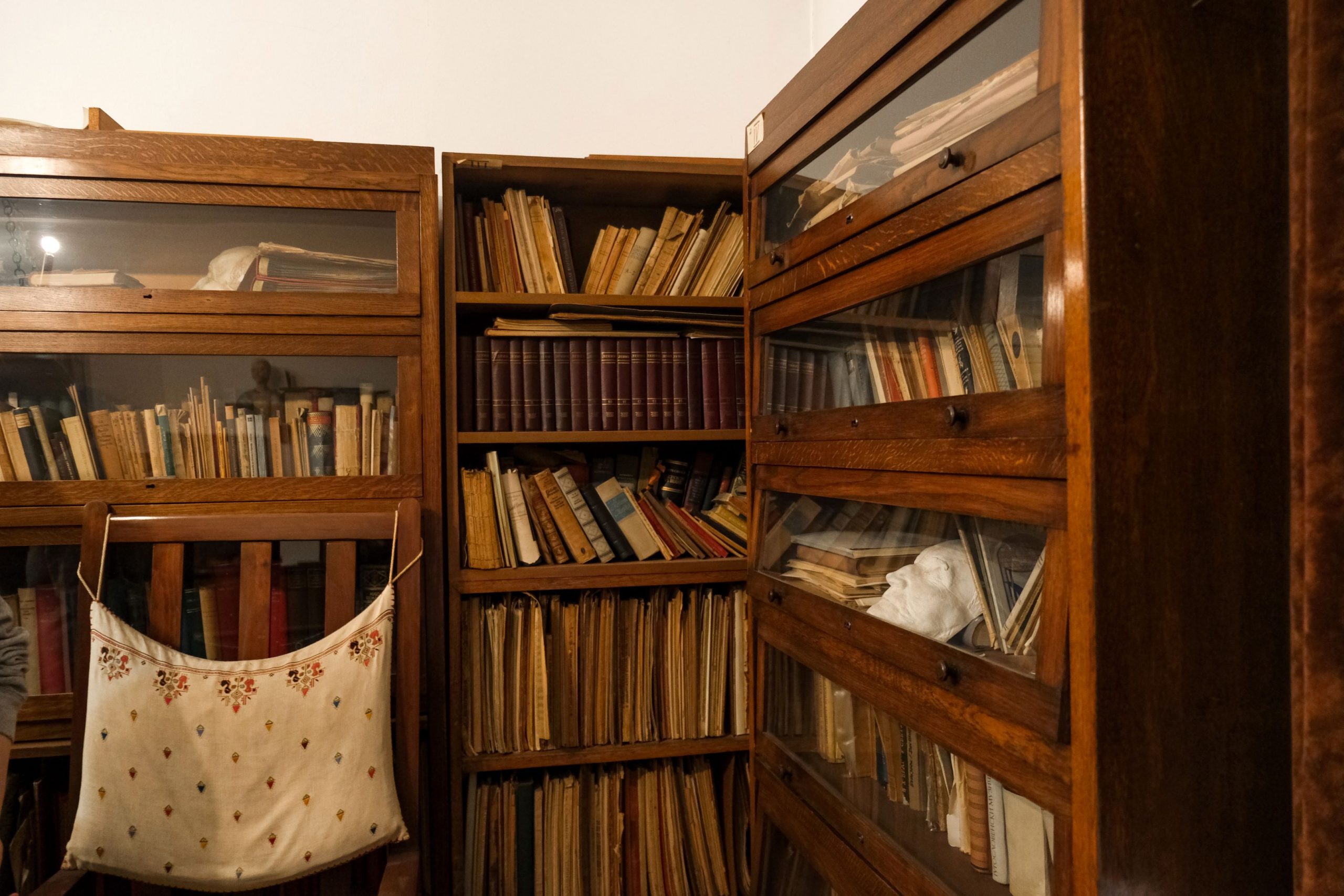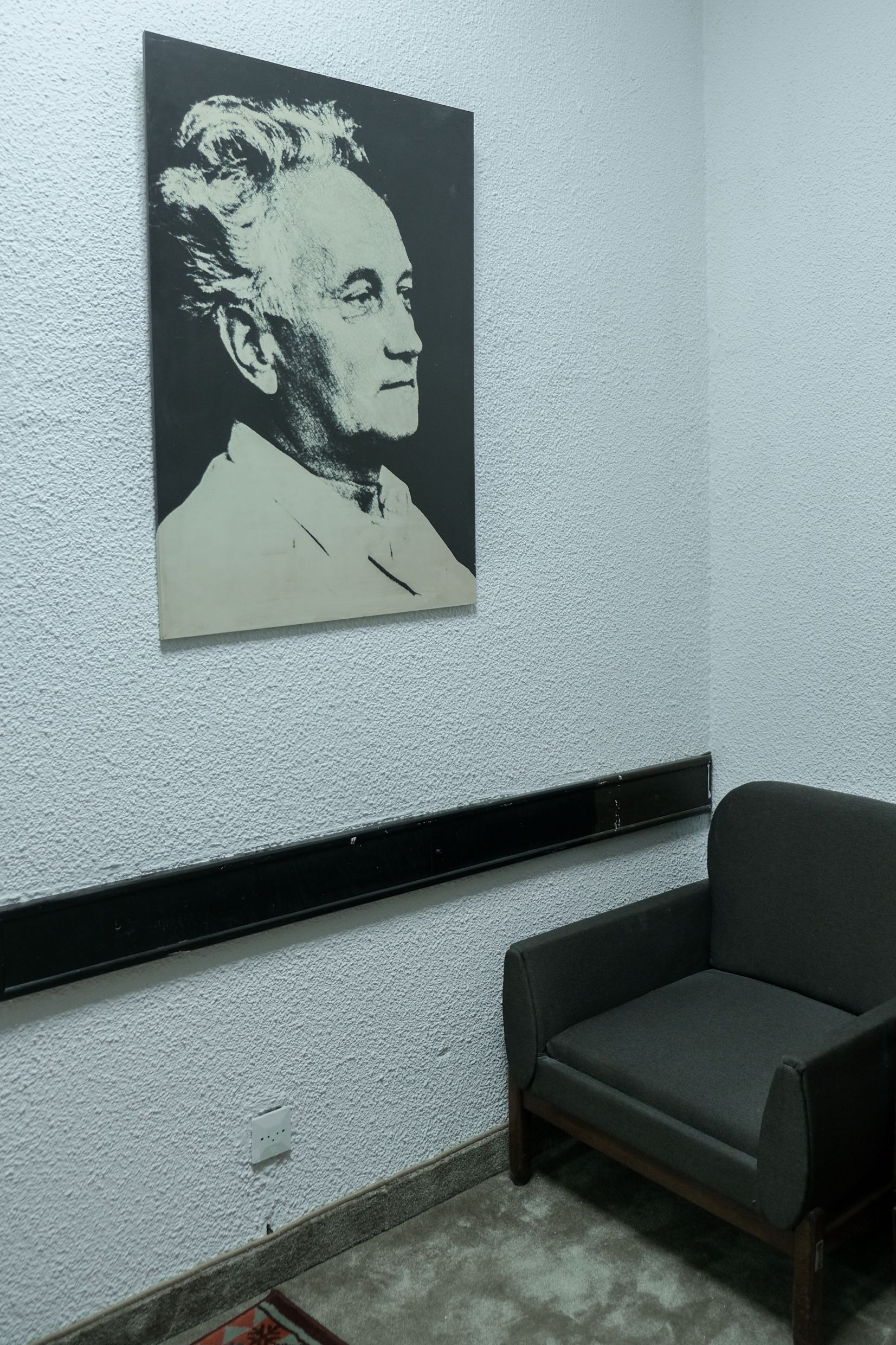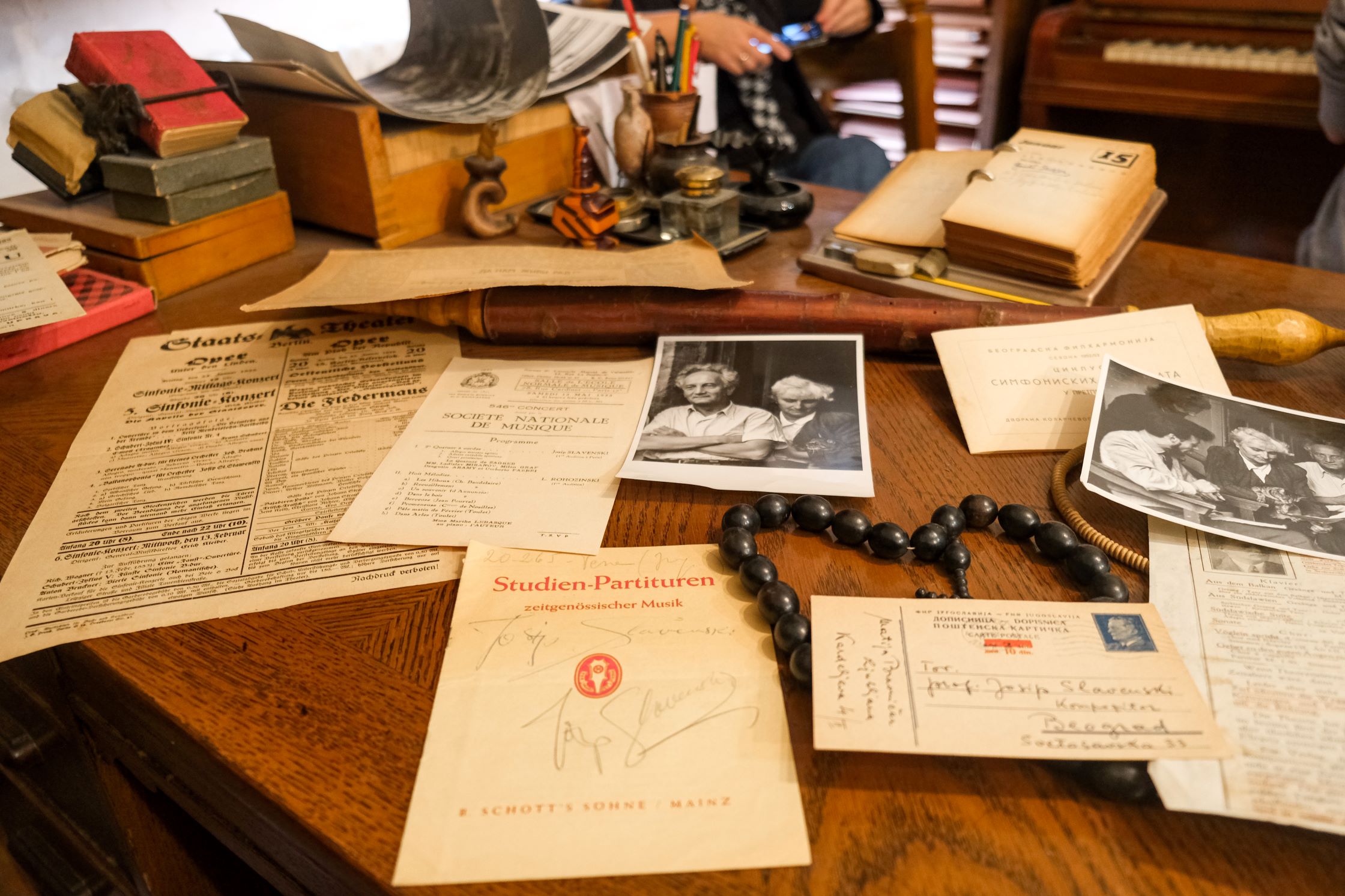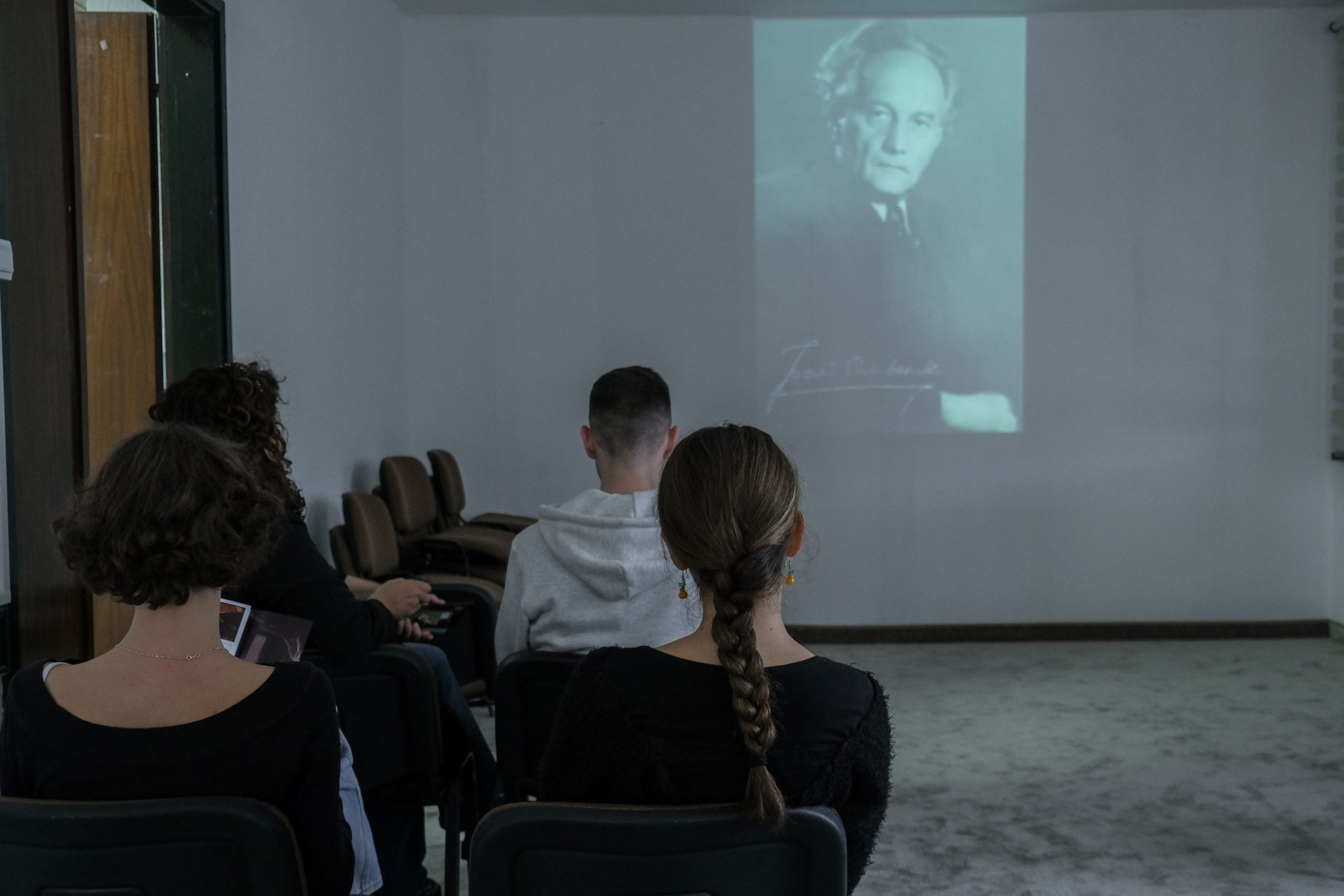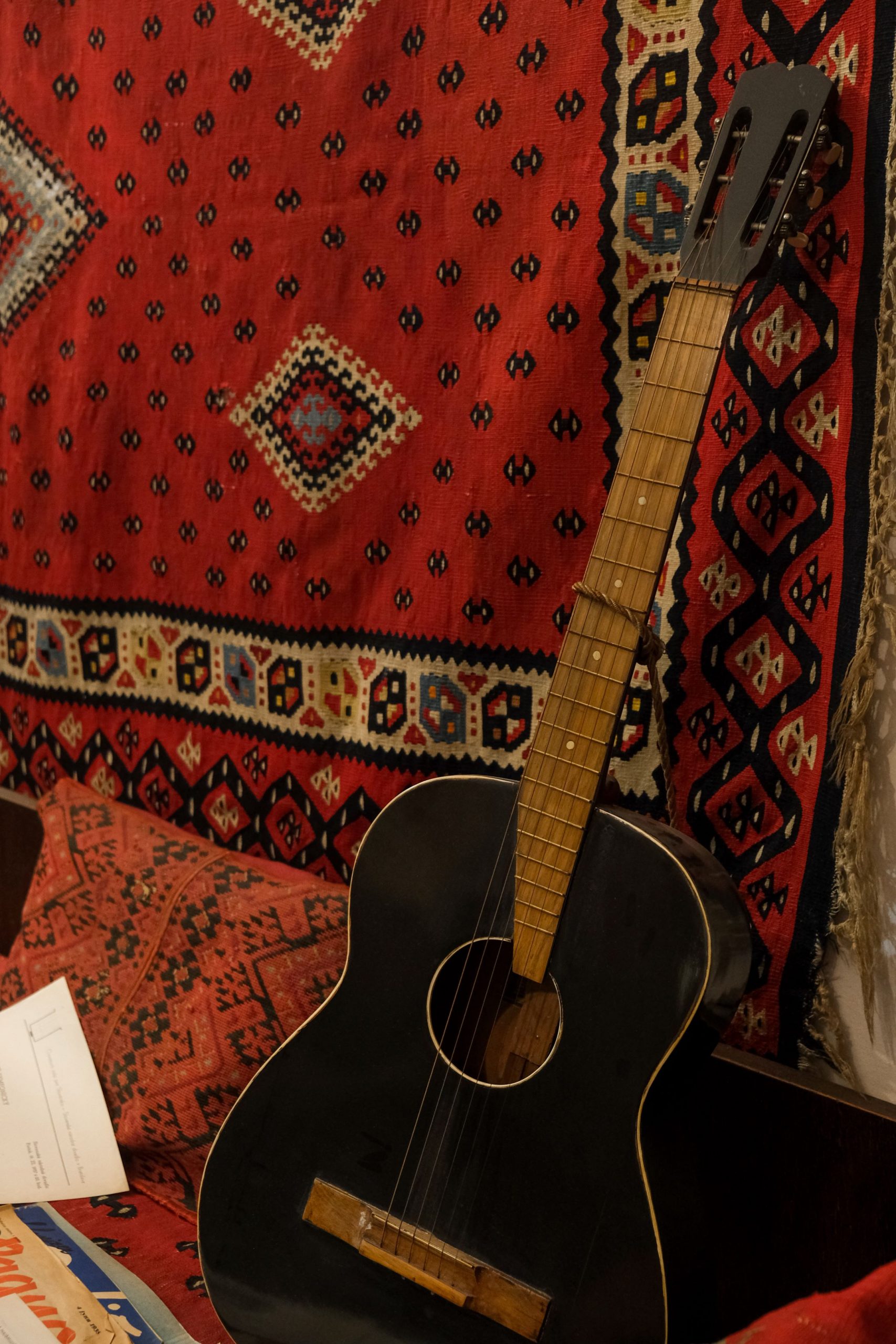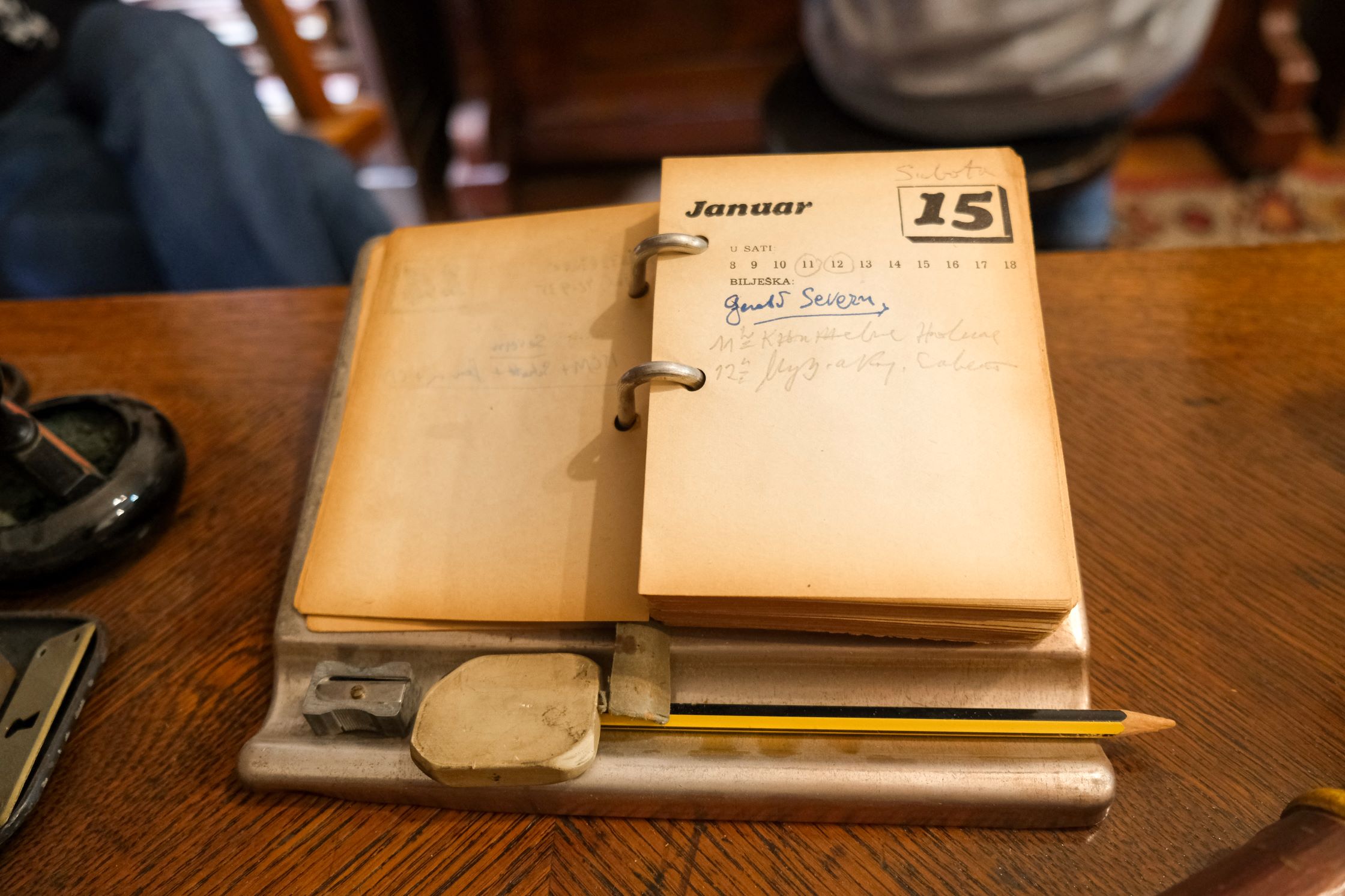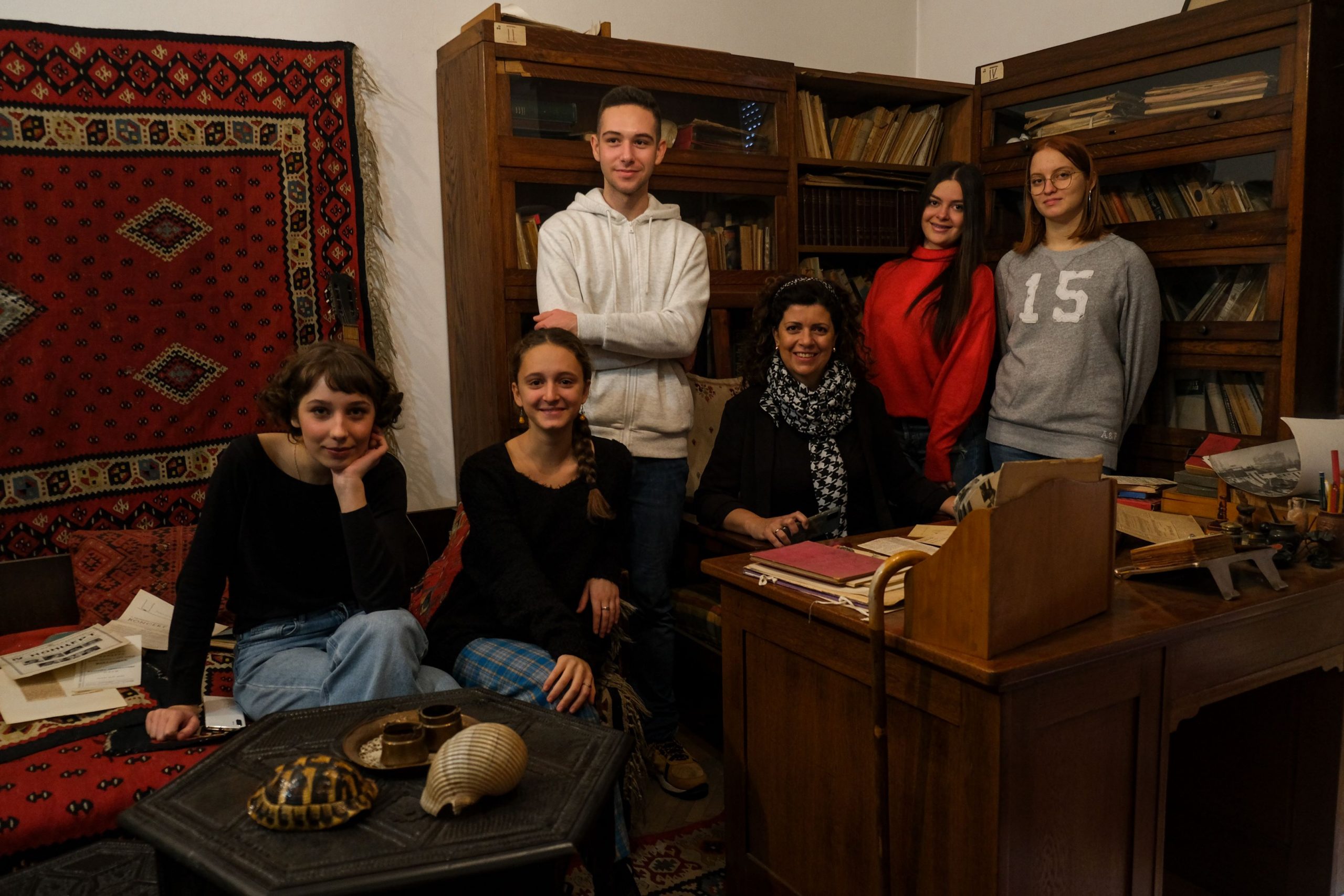Legat jugoslovenskog kompozitora hrvatskog porekla Josipa Slavenskog otvoren je 8. decembra 1983. godine u stanu na petom spratu zgrade broj 1 na trgu Nikole Pašića. Ovde se nalazi njegova radna soba preseljena iz Svetosavske ulice broj 33 gde je kompozitor živeo i radio do svoje smrti 1955. godine. U živopisnom prostoru balkanske etno dekoracije, nalaze se njegovi lični predmeti, rukopisi, klavir, različiti instrumenti, pisma, biblioteka, nototeka i fotografije.
Posetili smo legat Josipa Slavenskog, kompozitora koji se u svom radu inspirisao muzičkim folklorom različitih naroda Balkana. Taj duh Balkana ogleda se i u dekoraciji prostora – pirotski, ručno bojeni ćilimi, bosanski stočići iz Konjica (BiH) drvene stolice iz Crne Gore kao i različiti, narodni muzički instrumenti.
Velika biblioteka obuhvata čak 3360 predmeta od kojih su muzički 1271, 822 knjige, stotine gramofonskih ploča, magnetofosnih traka i više od hiljadu pisama. Pored toga, u Legatu se čuvaju, pored muzičkih, knjige iz različitih naučnih oblasti – fizike, hemije, astronomije, linvistike. U bibilioteci su brojne biografije slavnih kompozitora, a retka kolekcija rečnika svedoči da se Josip Slavenski dopisivao sa prijateljima na čak jedanaest jezika.
U prostoru posvećenom ovom kompozitoru nalazi se i koncertna sala sa oko sedamdesetak mesta koja služi kao zanimljiv koncertni prostor.
U njegovu čast muzička škola pri muzičkoj Akademiji u Beogradu nazvana je MŠ Josip Slavenski
Knjigu o Josipu Slavenskom pod nazivom JOSIP napisala je njegova supruga Milana Slavenski.
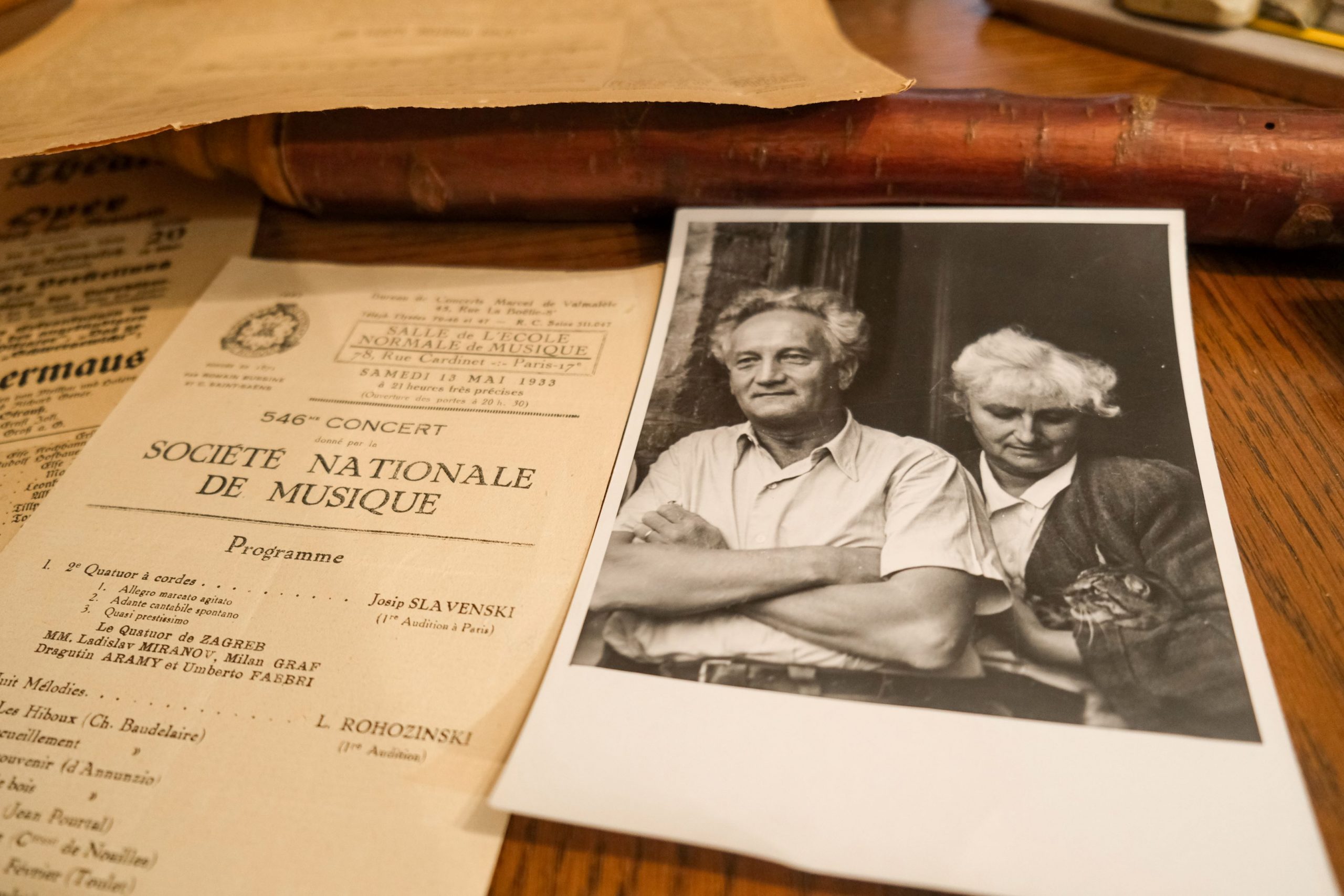
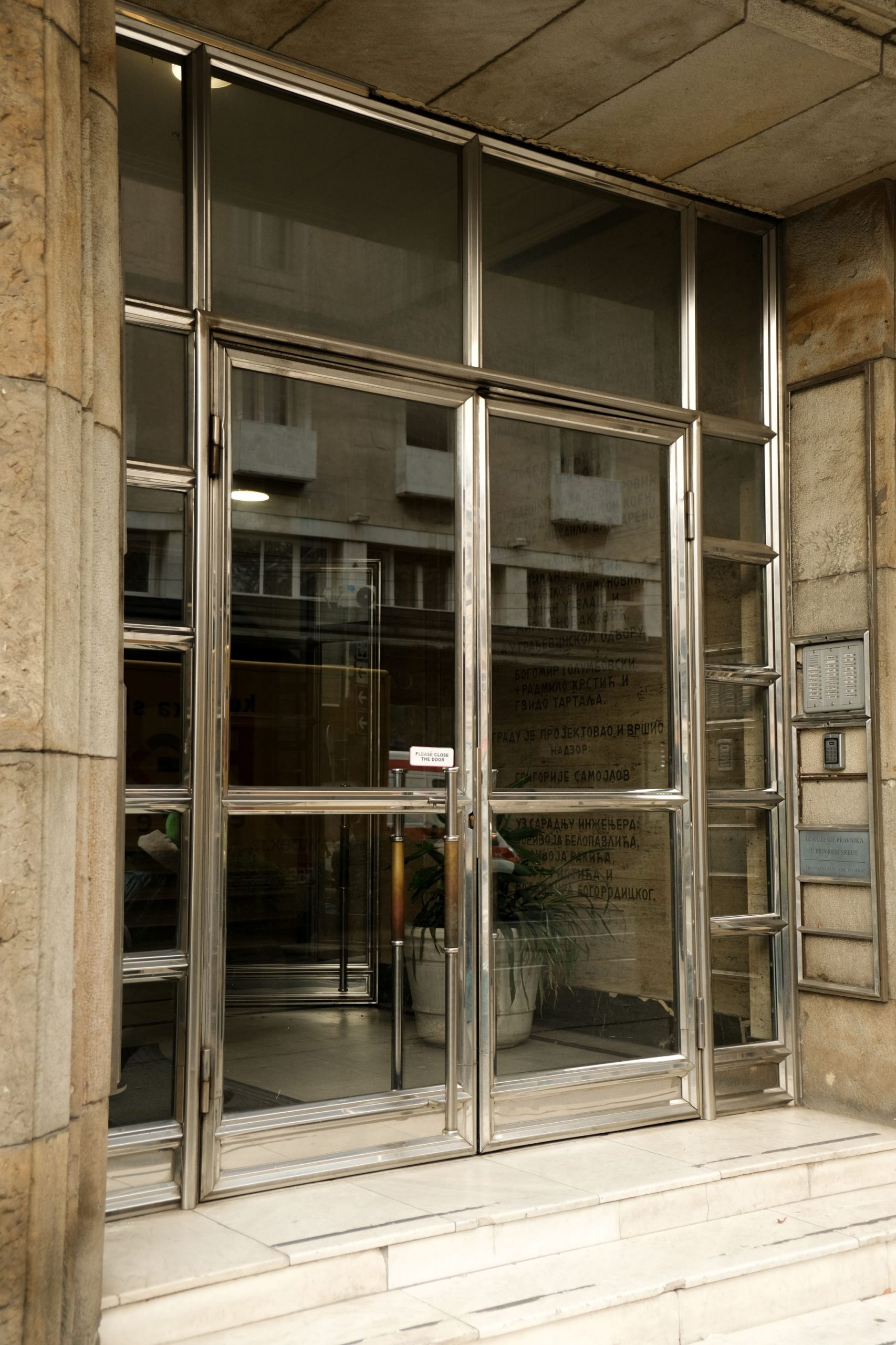
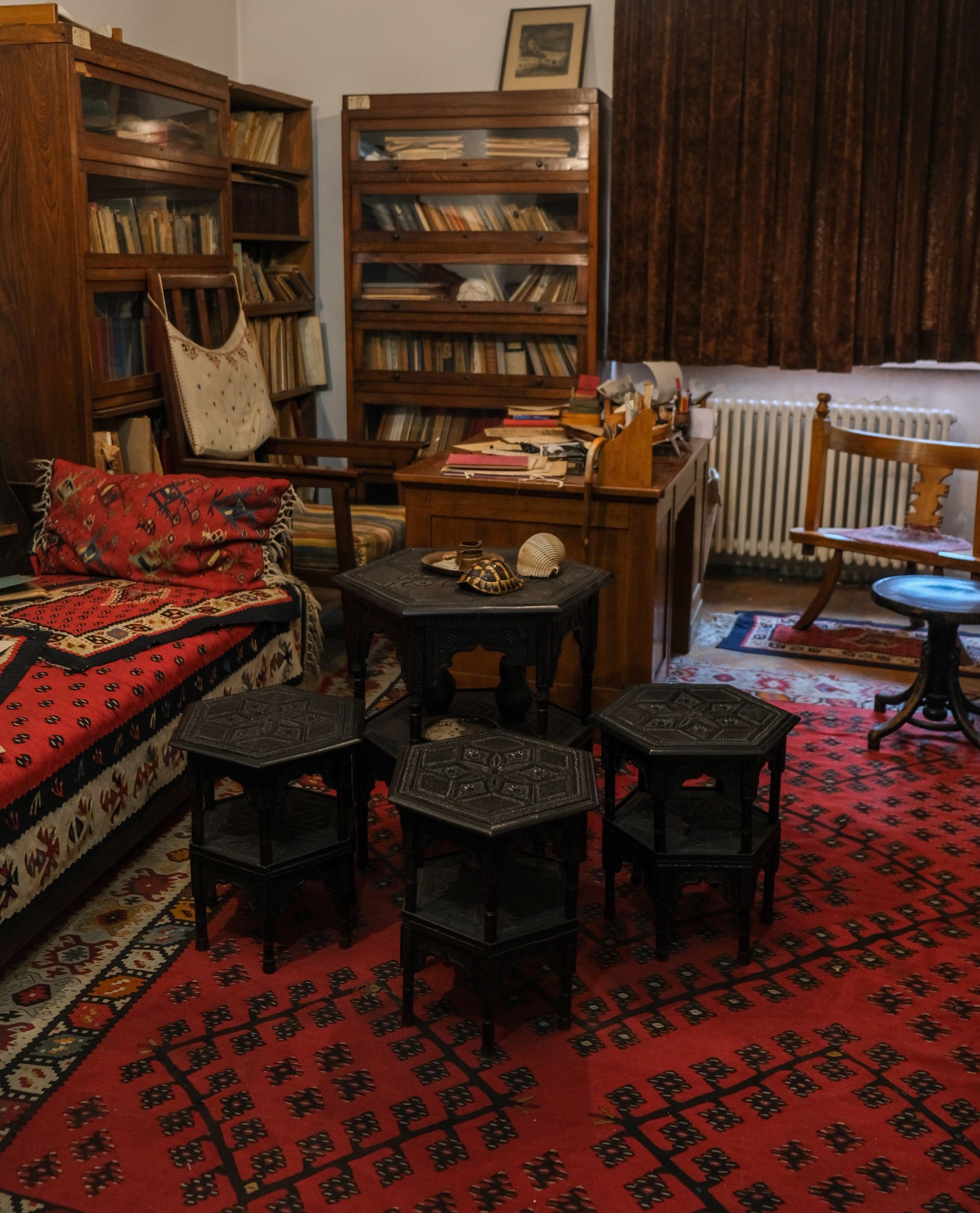
LIČNA PRIČA
Josip Štolcer Slevenski se rodio se 11. maja 1896. godine u Čakovcu (današnja Hrvatska), kao najstarije dete seoskog muzičara Josipa Štolcera i Julije Novak.
Iako je prvo završio pekarski zanat, od 1913. godine počeo je da pohađa muzičke akademije u Budimpešti, a kasnije i u Pragu.
Kada se posle Prvog svetskog rata se vratio u Čakovec, pod idejama panslavizma i „balkanofilstva“, sve češće se potpisisvao kao „Slavenski“. Ovo prezime je legalizovao 1930. godine.
Posle 1924. godine živeo je između Pariza i Beograda gde je počeo da radi u Muzičkoj školi (danas „Mokranjac“) i u Drugoj muškoj gimnaziji. Tada nastaju njegova najvažnija dela ( Balkanofonija, izvedena 1928. godine u Beogradu, naredne u Berlinu, a u sledećih deset godina osamdeset i tri puta, po čitavom svetu).
Godine 1934. Slavenski je komponovao kantatu Religiofonija (Simfonija Orijenta), ali njegova izdavačka kuća 1935. u vreme narastujećeg nacizma i fašizma u Evropi, odbila je ovo delo pošto muzika Jevreja i budista nije više bila rado prihvaćena. Od 1945. radio je kao vanredni, a od 1949. kao redovan profesor Muzičke akademije u Beogradu. Umro je 30. novembra 1955. godine u Beogradu.
Posetu Legatu organizovali smo zajedno sa učenicima MŠ Josip Slavenski.
Pripremila : Sofija Zdravković
